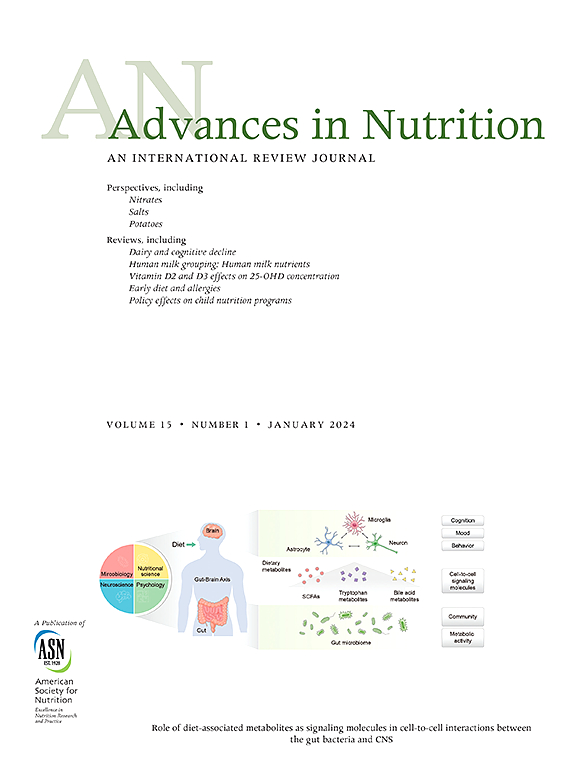Interactions between Gut Microbiota, Host Circadian Rhythms, and Metabolic Diseases
IF 9.2
1区 医学
Q1 NUTRITION & DIETETICS
引用次数: 0
Abstract
The circadian rhythm arises endogenously from genetically encoded molecular clocks, wherein the components collaborate to induce cyclic fluctuations, occurring approximately every 24 h. The rhythms synchronize biological processes with regular and predictable environmental patterns to guarantee the host metabolism and energy homeostasis function and well-being. Disruptions to circadian rhythms are widely associated with metabolic disorders. Notably, microbial rhythms are influenced by both the host’s intrinsic circadian clock and external rhythmic factors (i.e., light–dark cycle, diet patterns, and diet composition), which affect the structure of microbial communities and metabolic functions. Moreover, microbiota and the metabolites also reciprocally influence host rhythms, potentially impacting host metabolic function. This review aimed to explore the bidirectional interactions between the circadian clock, factors influencing host–microbial circadian rhythms, and the effects on lipid metabolism and energy homeostasis.
肠道菌群、宿主昼夜节律和代谢疾病之间的相互作用。
昼夜节律由遗传编码的分子钟内源性产生,其中各组成部分协同诱导周期波动,大约每24小时发生一次。这些节律将生物过程与有规律和可预测的环境模式同步,以保证宿主的代谢和能量稳态功能和健康。昼夜节律紊乱与代谢紊乱广泛相关。值得注意的是,微生物节律受到宿主内在生物钟和外部节律因素(如明暗周期、饮食模式和饮食组成)的影响,这些因素影响微生物群落的结构和代谢功能。此外,微生物群和代谢物也相互影响宿主的节律,潜在地影响宿主的代谢功能。本文综述了生物钟、影响宿主-微生物昼夜节律的因素以及对脂质代谢和能量稳态的影响之间的双向相互作用。重要意义:本综述探讨了影响宿主和微生物节律的因素,强调了肠道微生物群、代谢物和宿主昼夜节律之间的相互作用。此外,它还强调了微生物和宿主节律中断对代谢性疾病发展的影响。
本文章由计算机程序翻译,如有差异,请以英文原文为准。
求助全文
约1分钟内获得全文
求助全文
来源期刊

Advances in Nutrition
医学-营养学
CiteScore
17.40
自引率
2.20%
发文量
117
审稿时长
56 days
期刊介绍:
Advances in Nutrition (AN/Adv Nutr) publishes focused reviews on pivotal findings and recent research across all domains relevant to nutritional scientists and biomedical researchers. This encompasses nutrition-related research spanning biochemical, molecular, and genetic studies using experimental animal models, domestic animals, and human subjects. The journal also emphasizes clinical nutrition, epidemiology and public health, and nutrition education. Review articles concentrate on recent progress rather than broad historical developments.
In addition to review articles, AN includes Perspectives, Letters to the Editor, and supplements. Supplement proposals require pre-approval by the editor before submission. The journal features reports and position papers from the American Society for Nutrition, summaries of major government and foundation reports, and Nutrient Information briefs providing crucial details about dietary requirements, food sources, deficiencies, and other essential nutrient information. All submissions with scientific content undergo peer review by the Editors or their designees prior to acceptance for publication.
 求助内容:
求助内容: 应助结果提醒方式:
应助结果提醒方式:


